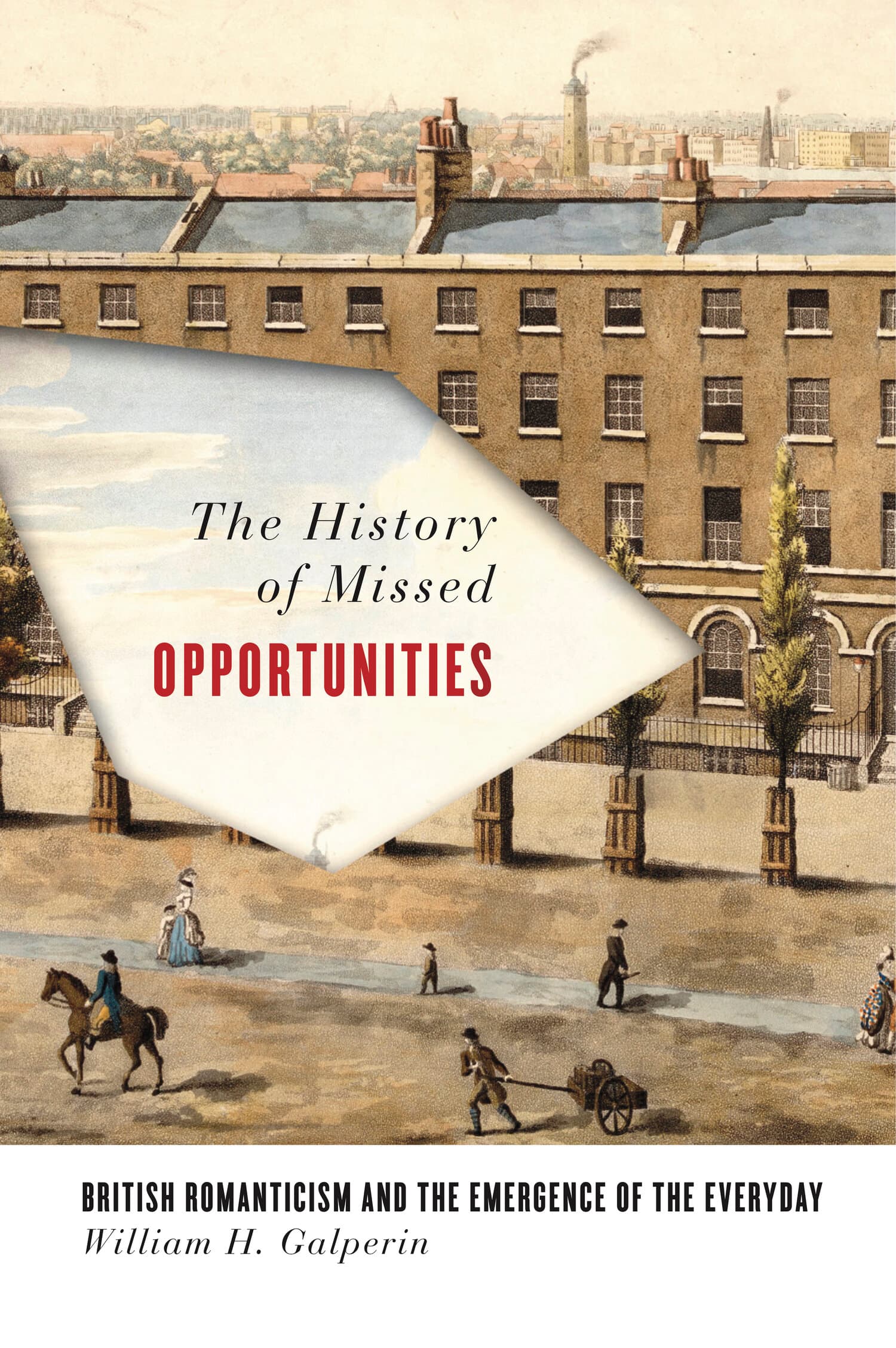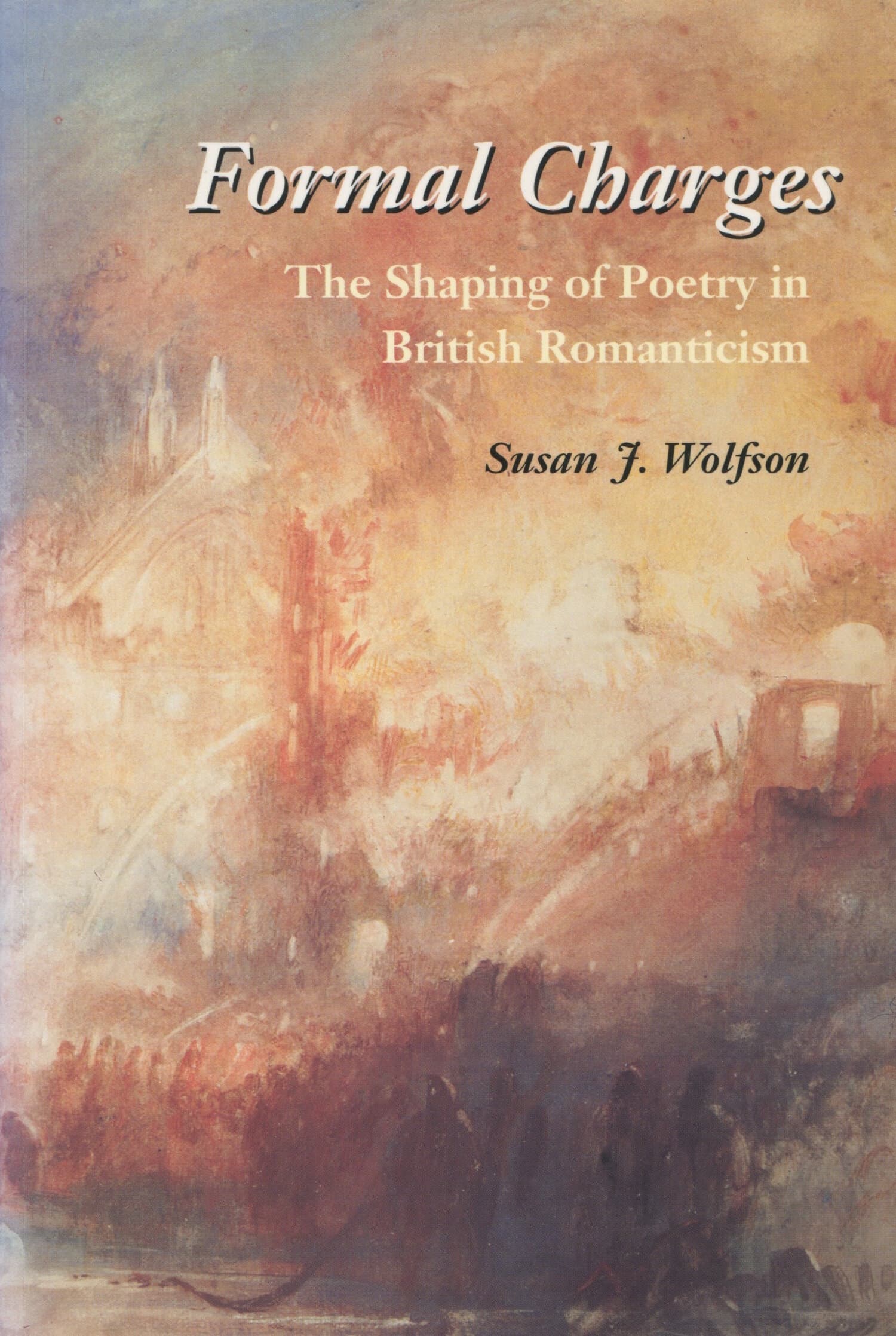The History of Missed Opportunities

Through close engagement with the work of Wordsworth, Austen, and Byron, The History of Missed Opportunities posits that the everyday first emerged as a distinct category of experience, or first became thinkable, in the Romantic period. Conceived here as something overlooked and only noticed in retrospect, the everyday not only becomes subject matter for Romanticism, it also structures Romantic poetry, prose, and writing habits. Because the everyday is not noticed the first time around, it comes to be thought of as a missed opportunity, a possible world that was not experienced or taken advantage of and of whose history—or lack thereof—writers become acutely conscious.
Consciousness of the everyday also entails a new relationship to time, as the Romantics turn to the history of what might have been. In recounting Romanticism's interest in making things recurrently present, in recovering a past of what was close at hand yet underappreciated, William H. Galperin positions the Romantics as precursors to twentieth-century thinkers of the everyday, including Heidegger, Benjamin, Lefebvre, and Cavell. He attends to Romantic discourse that works at cross purposes with standard accounts of both Romanticism and Romantic subjectivity. Instead of individualizing or turning inward, the Romantics' own discourse depersonalizes or exhibits a confrontation with thing-ness and the material world.
"Galperin's reassessments of Wordsworth and Austen make familiar texts new again, and his discussion of Byron is utterly compelling. The History of Missed Opportunities offers insights aplenty, some truly stunning readings, and a tremendous provocation to the field."—Deidre Lynch, Harvard University
"Philosophically adventurous and stylistically exacting, as well as frequently entertaining, Galperin's idiosyncratic rereadings form a genuinely new characterization of British Romanticism."—Tristram Wolff, Nineteenth-Century Contexts
"The critical yield of The History of Missed Opportunities is the dramatic and rewarding reorientation it presents in historical thinking within the study of Romanticism.... Galperin's study challenges us to reconsider an image of history that would move us through a past, present, and then a future, and it illuminates literature's role in assimilating and reencountering forms of experience that history itself may miss."—Magdalena Ostas, Studies in Romanticism
"[Galperin's] findings help us to see these authors and their characters as complex, self-interrogating, and self-critical figures."—Richard Eldridge, Review 19
"The History of Missed Opportunities, like the best literary criticism, takes readers back to the texts and the very lines that are most familiar and reveals things that have been overlooked all along, potential meanings that were missed. Only, in this case, the missed opportunities are the uncanny subject of the criticism itself . . . .This book will resonate strongly not only within romantic studies but perhaps more so beyond given the cultural moment, which harbors nostalgia as a habitus, and the deft analyses herein . . . . [T]he book marvelously identifies a latent utopian aesthetic that many have felt in reading and teaching, and teaching again, the literature of the past."—Jonathan Farina, The Wordsworth Circle
"[T]he book's strength lies . . . in its deft and sensitive readings. . . .a provocative reminder that the passions, idealizations, and subjective consolidations with which we associate Romanticism exist alongside its commitments to the quotidian and the particular."—Andrea Henderson, SEL Studies in English Literature
"The History of Missed Opportunities is essential. It is a provocative and rewarding book, and its contributions to our understanding of the works it addresses and of Romanticism more broadly are, by turns, compelling and disquieting."—Andrew Franta, Modern Philology
"This book distills much of what is best in Galperin's previous work, taking it into newly ambitious conceptual terrain....[It] conceives of its themes through such a powerful dialectic and provides such original readings of its chosen texts that it clearly exemplifies much that is most compelling about Romantic studies today. It is a must-read book for any scholar in the field."—David Collings, Keats-Shelley Journal




